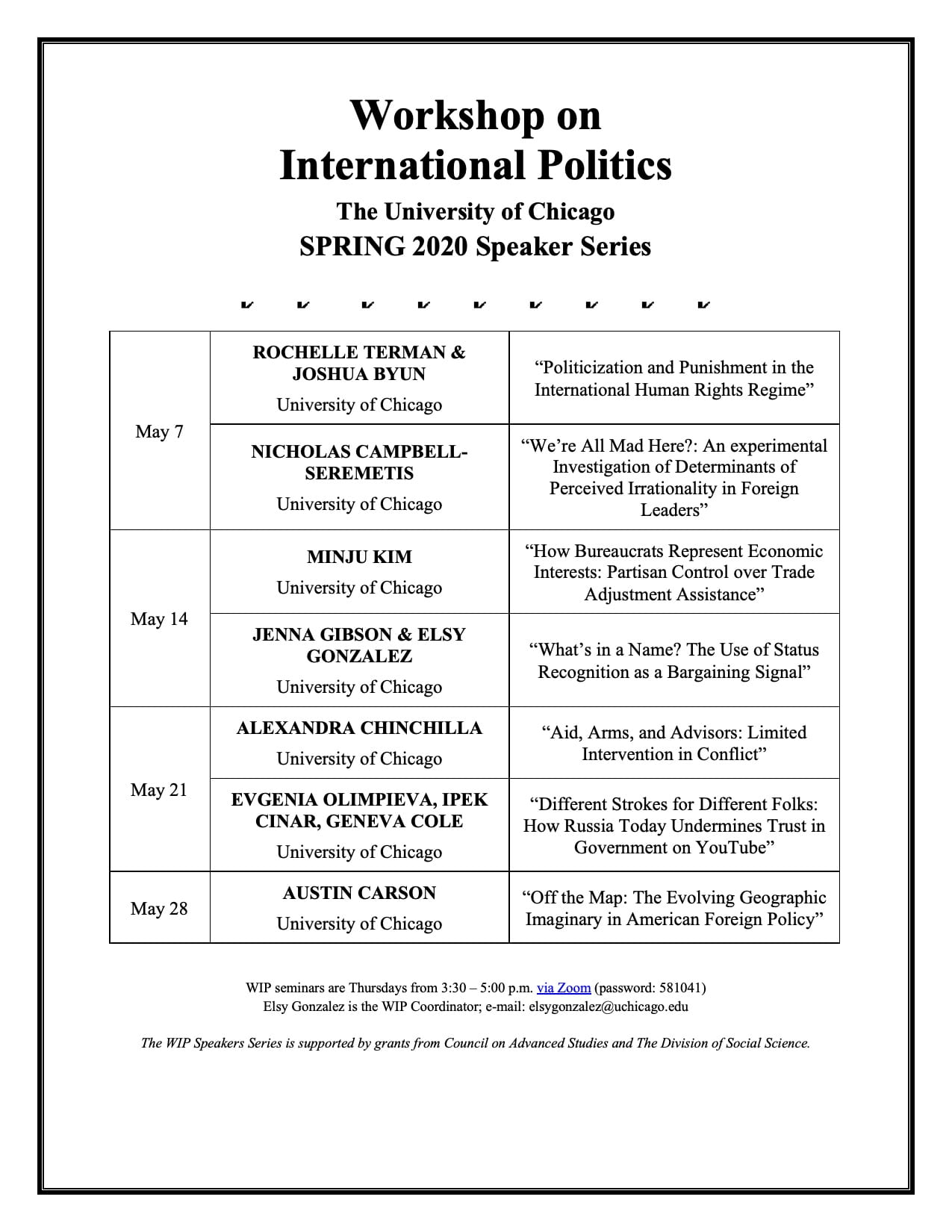Spring 2020 WIP Presents:
“How Bureaucrats Represent Economic Interests: Partisan Control over Trade Adjustment Assistance“
Minju Kim
University of Chicago
Abstract: Governments adopt redistributive policies to assist those harmed by international trade. In the United States, benefits are conditioned on a technical determination that the petitioning workers were displaced by trade. However, the bureaucrats who make this decision are themselves subject to political forces. In this paper, I show how these political effects manifest in the career institutions that place the power of permanent appointments in the hands of politically appointed agency heads. To show this, I examine the 45 years of the Trade Adjustment Assistance (TAA) petition-level data (84, 165 petitions) and career paths of the Office of Trade Adjustment Assistance (OTAA) investigators. I find that they are less likely to certify the petitions and more likely to delay the investigations during Republican presidencies and vice versa during Democratic presidencies, especially in their first few years of careers prior to obtaining a permanent appointment. I further show these partisan effects amplify when the labor- Democratic party coalition is strong. These findings, through clarifying when and how career bureaucrats respond to policy platforms of the political parties, demonstrate the importance of the executive in shaping distributive outcomes.
and
“What’s in a Name? The Use of Status Recognition as a Bargaining Signal“
Jenna Gibson and Elsy Gonzalez
University of Chicago
Abstract: In 2017, U.S. President Donald Trump threatened to rain fire and fury upon North Korea, then embraced a policy of engagement with North Korea’s Kim Jong Un a mere year later. At the same time, the State Department shifted from referring to Kim without an official title to almost exclusively calling him “Chairman Kim,” his own preferred designation. What explains this abrupt shift in rhetoric used to confer or withhold respect and status to Kim? And what does that shift say about the bargaining position of major powers vis-a-vis their potential negotiating partner? Using text analysis of U.S. press briefings and presidential tweets regarding North Korea as our primary evidence, this paper will examine how forms of address used by a state towards another can signal shifting policy intentions long before the two parties sit down at the table. This furthers existing work on the importance of rhetorical dynamics in foreign policy and in the broader international structure, including the importance of status for diplomatic exchange.
*No paper presented
Thursday, May 14th: 3:30pm-5:00pm
via Zoom (password: 581041)
To access the paper, please contact Elsy Gonzalez at elsygonzalez@uchicago.edu.
Persons who believe they may need assistance to attend the session should contact Elsy Gonzalez in advance to make arrangements.
The WIP Speakers Series is supported by grants from Council on Advanced Studies in the Humanities and Social Sciences and The University of Chicago Division of the Social Sciences.

